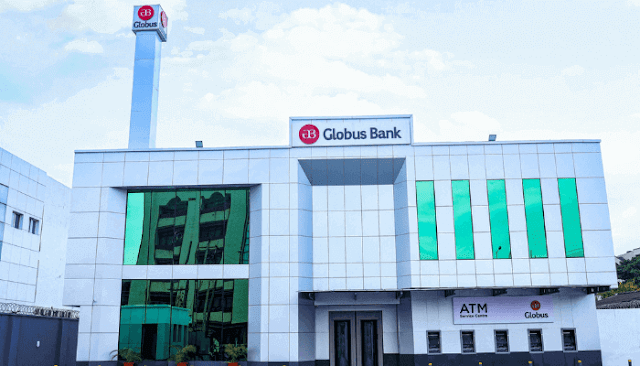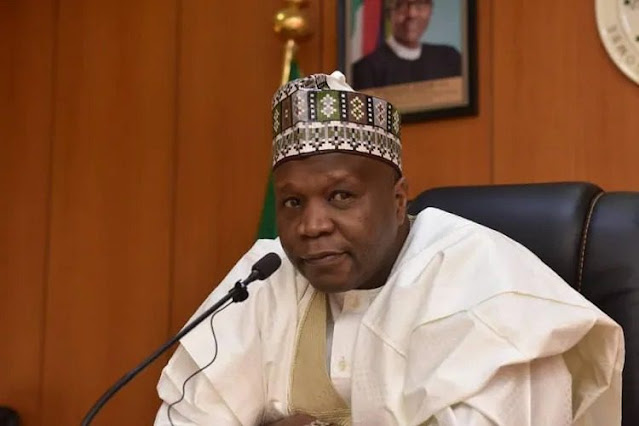In a significant milestone for Nigeria’s financial services industry, Globus Bank Limited, a relatively young commercial bank with a national license, has successfully raised over ₦200 billion in capital, exceeding the Central Bank of Nigeria’s (CBN) recapitalization requirement. This achievement, announced in September 2025, positions Globus Bank among the frontrunners in the CBN’s ongoing banking sector recapitalization exercise, which mandates banks to meet stringent capital thresholds by March 31, 2026. The capital raise, awaiting final verification from the CBN, underscores Globus Bank’s strategic foresight, financial discipline, and growing influence in Nigeria’s competitive banking landscape.
This article delves into the details of Globus Bank’s capital-raising efforts, the broader context of the CBN’s recapitalization directive, and the implications for Nigeria’s banking sector and economy. It also examines the challenges smaller banks face, the role of regulatory oversight, and the path forward for sustaining financial stability and fostering economic growth.
Background: The CBN’s Recapitalization Directive
In March 2024, the Central Bank of Nigeria, under the leadership of Governor Olayemi Cardoso, introduced a new recapitalization policy aimed at strengthening the resilience of the country’s banking sector. The directive set new minimum capital requirements for banks based on their license categories: ₦500 billion for banks with international licenses, ₦200 billion for those with national licenses, ₦50 billion for regional and merchant banks, and ₦20 billion and ₦10 billion for national and regional non-interest banks, respectively. The policy, which builds on previous recapitalization exercises, notably the 2004–2005 reforms under Charles Soludo, seeks to fortify banks against economic shocks, enhance their lending capacity, and position Nigeria’s financial institutions to compete globally.
The recapitalization exercise was prompted by several factors, including naira depreciation, rising inflation, and exposure to high-risk sectors such as oil and gas. Over the past decade, the naira’s value has eroded significantly, reducing the dollar-denominated capital of Nigerian banks and limiting their ability to absorb losses. Additionally, the adoption of the IFRS 9 accounting standard and macroeconomic challenges, such as currency volatility and high interest rates, have strained banks’ capital bases. The CBN’s directive aims to create a more robust banking system capable of supporting Nigeria’s economic diversification and growth ambitions.
For banks with national licenses, such as Globus Bank, the ₦200 billion threshold represents a significant increase from the previous requirement of ₦25 billion. Meeting this target requires strategic planning, access to capital markets, and strong investor confidence. Globus Bank’s ability to surpass this threshold ahead of the March 2026 deadline is a testament to its operational strength and market appeal.
Globus Bank’s Capital-Raising Journey
Globus Bank Limited, established in 2019, has emerged as a dynamic player in Nigeria’s banking sector despite its relatively short history. The bank, which operates a “phy-gital” strategy combining physical branches with digital platforms, has prioritized innovation and customer-centric services. Its capital-raising efforts, which began in earnest following the CBN’s 2024 directive, reflect a well-orchestrated plan to meet regulatory requirements while positioning the bank for future growth.
According to reports, Globus Bank raised over ₦200 billion through a combination of rights issues and private placements. In 2024, the bank’s shareholders injected ₦26.6 billion through rights issuance, strengthening its balance sheet. Earlier plans outlined by the bank’s chairman, Peter Amangbo, in June 2024, detailed a multi-year strategy to raise ₦129 billion by 2026, with ₦10 billion through private placement in 2024, ₦50 billion through rights issues and private placements in 2025, and the remaining ₦69 billion via private placements and a public offer in early 2026. The bank’s ability to exceed the ₦200 billion target well ahead of schedule suggests that it accelerated its efforts and tapped into strong investor demand.
The success of the capital raise is underpinned by Globus Bank’s impressive financial performance. In 2023, the bank reported a 117.56% year-on-year increase in profit, rising from ₦8.311 billion to ₦18.082 billion, driven by a 93.77% surge in interest income from ₦34.627 billion to ₦67.98 billion. This robust financial scorecard, coupled with a growing balance sheet size of ₦1.4 trillion by mid-2024, enhanced the bank’s appeal to investors. The recent upgrade of its credit rating to “A” by Agusto & Co. and GCR Ratings further reinforced investor confidence, highlighting the bank’s prudent risk management and commitment to sustainable growth.
Implications for Globus Bank
Globus Bank’s successful capital raise has far-reaching implications for its operations and strategic positioning. First, it ensures compliance with the CBN’s recapitalization requirements, allowing the bank to retain its national banking license and avoid potential downgrades or mergers. This is particularly significant for a tier-3 bank like Globus, as smaller lenders face heightened pressure to consolidate or scale up to remain competitive.
Second, the additional capital strengthens Globus Bank’s balance sheet, enabling it to expand its lending capacity. With Nigeria’s economy facing challenges such as high inflation and foreign exchange volatility, banks with robust capital bases are better positioned to support businesses and households through credit provision. Globus Bank’s focus on sectors such as agriculture and infrastructure, identified as critical for Nigeria’s growth, aligns with national development priorities. The bank’s “phy-gital” strategy, which leverages 43 branches and fintech partnerships, positions it to capture market share in both traditional and digital banking segments.
Third, the capital raise enhances Globus Bank’s competitive position in a sector dominated by tier-1 giants such as Access Bank, Zenith Bank, and GTBank. By meeting the recapitalization target, Globus joins a select group of banks, including Wema Bank, PremiumTrust Bank, and Stanbic IBTC, that have scaled the CBN’s hurdle ahead of schedule. This achievement could attract further investment and partnerships, enabling the bank to expand its footprint and innovate its offerings.
The Broader Banking Sector: A Tale of Progress and Challenges
Globus Bank’s success is part of a broader trend in Nigeria’s banking sector, where several institutions have made significant strides toward meeting the CBN’s recapitalization requirements. As of August 2025, at least ten banks, including Access Holdings, Zenith Bank, Stanbic IBTC, Wema Bank, GTBank, Lotus Bank, Jaiz Bank, Providus Bank, Greenwich Merchant Bank, and PremiumTrust Bank, have met their respective capital thresholds. These banks have raised substantial funds through rights issues, public offers, and private placements, with approximately ₦1.7 trillion raised in 2024 and an additional ₦800 billion in the first seven months of 2025.
However, not all banks have been as successful. Tier-1 banks such as First Bank, UBA, and Fidelity Bank are still scrambling to meet the ₦500 billion threshold for international licenses, with some facing funding gaps of up to ₦233.8 billion. Smaller tier-3 banks, including Standard Chartered Bank, Nova Bank, Titan Trust Bank, and Optimus Bank, are reportedly exploring mergers and acquisitions as a path to compliance, as their recapitalization efforts have lagged. The CBN’s refusal to extend the March 2026 deadline has heightened pressure on these institutions, with potential consequences including license downgrades or forced consolidations.
The banking sector’s recapitalization efforts are occurring against a backdrop of mixed economic signals. On one hand, Nigerian banks have posted record profits, with five of the top ten reporting a combined pre-tax profit of ₦4.6 trillion in 2024, a 70% increase from the previous year. This profitability has been driven by wide interest rate spreads, high yields on government securities, and revaluation gains from naira depreciation. On the other hand, the CBN’s directive to suspend dividend payments and bonuses to preserve capital has sparked concerns about investor confidence and market volatility. The paradox of banks reporting “bogus earnings” while struggling to meet capital requirements highlights deeper issues in financial reporting and regulatory oversight.
Economic Context: Navigating Headwinds and Opportunities
The CBN’s recapitalization policy is a response to Nigeria’s challenging economic environment. The country has faced significant macroeconomic headwinds, including currency volatility, inflation rates exceeding 30% in 2024, and a tight monetary policy with interest rates at 27.5% into 2025. These factors have eroded banks’ capital bases in dollar terms and strained their ability to absorb losses, particularly in high-risk sectors like oil and gas.
At the same time, the policy aligns with Nigeria’s broader economic goals, including diversification away from oil and integration into the African Continental Free Trade Area (AfCFTA). A stronger banking sector can support credit intermediation, enabling businesses to access the financing needed for growth. For instance, Globus Bank’s increased capital could facilitate lending to agriculture and infrastructure, sectors critical to reducing Nigeria’s reliance on oil exports.
However, challenges such as unreliable electricity, insecurity, and bureaucratic inefficiencies continue to hamper business operations. The banking sector’s reliance on government securities for profitability, as noted by analysts, also raises concerns about its disconnect from the real economy, particularly struggling sectors like manufacturing and agriculture. Addressing these structural issues will be essential for translating banking sector resilience into broader economic growth.
Challenges for Smaller Banks
Globus Bank’s success contrasts with the struggles of other tier-3 banks, many of which face significant hurdles in meeting the CBN’s capital requirements. International rating agency Fitch Ratings has predicted that mergers and acquisitions are likely for smaller banks, as they lack the scale and investor appeal of tier-1 institutions. For example, Titan Trust Bank recently merged with Union Bank to meet regulatory requirements, a move that underscores the consolidation trend among smaller players.
Smaller banks also face challenges such as high borrowing costs, limited access to capital markets, and exposure to forbearance loans, which the CBN has mandated banks to fully provision for before paying dividends. These constraints could force some banks to downgrade their licenses or exit the market, potentially reducing competition but strengthening the overall sector.
Regulatory Oversight and Consumer Trust
The CBN’s recapitalization directive is part of a broader effort to enhance regulatory oversight and restore trust in Nigeria’s banking sector. The paradox of banks reporting record profits while struggling to meet capital requirements has raised questions about the credibility of financial reporting. Analysts have called for stricter consumer protection policies, transparent financial disclosures, and independent audits to address these concerns.
For Globus Bank, maintaining consumer trust will be critical as it expands its operations. Recent incidents involving customer complaints about refunds and alleged money laundering activities have drawn scrutiny, highlighting the need for robust governance and accountability. The bank’s upgraded credit rating and successful capital raise provide a foundation for addressing these issues, but sustained efforts to prioritize transparency and customer service will be essential.
Policy Recommendations
To sustain the momentum of Globus Bank’s achievement and strengthen the banking sector, policymakers and regulators should consider the following:
Enhance Access to Capital Markets: The CBN and the Securities and Exchange Commission (SEC) should streamline processes for banks to access capital markets, particularly for smaller institutions. Initiatives like Access Holdings’ fully digital rights issue, which leveraged the Nigerian Exchange’s E-offer platform, could serve as a model.
Address Structural Bottlenecks: Investments in infrastructure, particularly electricity and security, are critical to reducing operating costs for banks and their clients. The government should prioritize renewable energy projects and community policing to create a more conducive business environment.
Promote Financial Inclusion: Expanding credit access for SMEs and underbanked populations can drive economic growth. The CBN could explore innovative financing models, such as microfinance and fintech partnerships, to support small businesses.
Strengthen Regulatory Oversight: The CBN should enforce stricter financial reporting standards and independent audits to address the credibility gap in banks’ profit figures. Consumer protection policies should also be strengthened to prevent arbitrary charges and enhance trust.
Encourage Sectoral Lending: Banks like Globus should be incentivized to lend to priority sectors such as agriculture, manufacturing, and technology. Tax incentives and credit guarantees could encourage banks to channel their increased capital into productive investments.
Looking Ahead: A Stronger Banking Sector
Globus Bank’s successful capital raise is a beacon of hope for Nigeria’s banking sector, demonstrating that even younger institutions can compete in a challenging environment. By surpassing the CBN’s ₦200 billion requirement, the bank has positioned itself for growth, resilience, and greater market relevance. However, the broader sector faces a race against time, with many banks still struggling to meet the March 2026 deadline.
The recapitalization exercise, if successful, could transform Nigeria’s banking landscape, creating a more robust and competitive financial system. For Globus Bank, the focus now shifts to leveraging its strengthened capital base to expand lending, enhance digital offerings, and build consumer trust. As Nigeria navigates a complex economic landscape, the banking sector’s ability to support businesses and households will be critical to achieving sustainable growth.
In conclusion, Globus Bank’s achievement is a microcosm of the opportunities and challenges facing Nigeria’s banking sector. By addressing structural issues, enhancing regulatory oversight, and fostering innovation, Nigeria can build a financial system that not only withstands economic shocks but also drives inclusive growth. As the March 2026 deadline approaches, the actions of banks like Globus will shape the future of Nigeria’s economy, offering a blueprint for resilience and progress.








